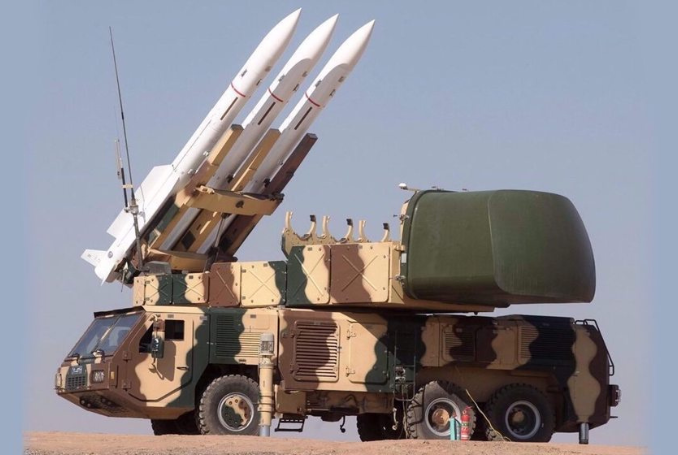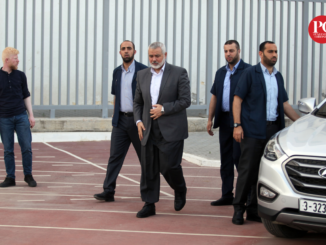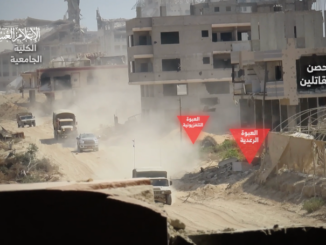
Israel’s attack was met with widespread condemnation and calls for restraint from the international community, but also with varying degrees of support from Israel’s allies.
Israel announced on Saturday a targeted assault on Iranian military installations, citing it as a defensive response to Iran’s prior Sadeq 2 operation.
The Israeli attack, which lasted nearly four hours and spanned Tehran, Khuzestan, and Ilam, was met with widespread condemnation and calls for restraint from the international community, but also with varying degrees of support from Israel’s allies.
‘Right to Self-Defense’ – United States
The US administration, while reiterating that it was not directly involved, reaffirmed Israel’s right to self-defense.
US National Security Council spokesperson Adam Savett underscored that Israel’s operation deliberately focused on military targets.
Senior White House officials later communicated US President Joe Biden’s desire for this strike to “close out” the recent hostilities between the two nations, reinforcing the administration’s goal of de-escalation in the Middle East.
For his part, Secretary of Defense Lloyd Austin reaffirmed the US commitment to Israel’s security in a conversation with his Israeli counterpart, Yoav Gallant, emphasizing ongoing support for Israel’s defense operations.
Violation of Sovereignty – Qatar
In a statement condemning the assault as a violation of Iranian sovereignty, Qatar’s Ministry of Foreign Affairs urged all parties to practice restraint and rely on peaceful resolution methods to avoid destabilizing the region further.
The statement expressed “deep concern regarding the serious repercussions that may result from this escalation” and urged all parties “to exercise restraint, resolve disputes through dialogue and peaceful means, and avoid anything that could destabilize security and stability in the region”.
The ministry underscored the need for the international community to prioritize humanitarian concerns, particularly in Gaza and Lebanon, as regional tensions escalate.
‘Ceasefire is Urgent’ – Egypt
Egypt’s Ministry of Foreign Affairs condemned any acts threatening regional security and emphasized the urgency of establishing a ceasefire in Gaza.
“Egypt stresses its position that a ceasefire in the Gaza Strip should be reached quickly within the framework of a deal through which hostages are released given that it is the only way to de-escalate,” the ministry said in a statement.
‘Brink of Wider War’ – Turkiye
Turkiye condemned Israel’s attack, linking it to ongoing regional conflicts and stating that “Israel, which is committing genocide in Gaza, preparing to annex the West Bank, and killing civilians every day in Lebanon, has now brought our region to the brink of a wider war.”
Turkey’s Ministry of Foreign Affairs called for immediate international intervention to halt Israeli actions in Gaza, underscoring his country’s disapproval of Israel’s role in regional instability.
‘Uncontrollable Escalation’ – Russia
The spokeswoman for the Russian Foreign Ministry, Maria Zakharova, appealed for an immediate end to hostilities, warning of the high risk of an uncontrollable escalation.
Zakharova emphasized the need to avoid provoking Iran into retaliatory measures, calling on all parties to step back from the brink of potential catastrophe.
“We urge all parties involved to exercise restraint, stop the violence and prevent events from developing into a catastrophic scenario,” Zakharova said.
“It is necessary to stop provoking Iran into retaliatory actions and get out of the spiral of uncontrolled escalation,” she added.
Calls for Restraint
German Chancellor Olaf Scholz urged restraint from all involved, specifically cautioning Iran against escalating the situation further.
“My message to Iran is clear: massive escalating reactions must not continue. These must stop immediately,” he wrote on the X platform.
“Only then can we open the possibility of a peaceful evolution in the Middle East,” Scholz concluded.
UK Prime Minister Keir Starmer expressed support for Israel’s right to defend itself while warning against further regional escalation.
He emphasized the importance of restraint from all parties, urging Iran not to retaliate in response to the Israeli strike.
IRANIAN NOUR NEWS WEBSITE:
The Israeli aggression cannot be ignored, regardless of its weakness and Israel's efforts to exaggerate it.
Tehran's policy on Israeli aggression is to respond without delay or haste. pic.twitter.com/3Np1G7qhXN
— The Palestine Chronicle (@PalestineChron) October 26, 2024
“I am clear that Israel has the right to defend itself against Iranian aggression. I’m equally clear that we need to avoid further regional escalation and urge all sides to show restraint. Iran should not respond,” he said in a statement.
For its part, the French Ministry of Foreign Affairs also issued a call for restraint, encouraging all actors to avoid actions that could aggravate the already-tense situation in the Middle East, while stressing the need for a diplomatic resolution.
In a statement, the ministry urged “all parties to abstain from any escalation and action that could worsen the extremely tense context in the region”.
Widespread Condemnation
Across the Arab and Islamic world, leaders voiced strong objections to Israel’s actions. Yemen’s government denounced the assault as an attempt to deflect attention from Israel’s activities in Gaza, calling for a united Arab response.
The UAE’s Ministry of Foreign Affairs condemned the attack, advocating for diplomatic efforts to address regional tensions and stabilize relations.
Iraq’s government condemned Israel’s continuous aggression, attributing it to increased regional instability and warning of the consequences if hostilities persist. Oman’s Foreign Minister Badr al-Busaidi, while acknowledging the limited damage caused, urged urgent attention to the underlying regional conflicts that fuel such escalations.
The Palestinian movement Hamas condemned Israel’s assault as a violation of Iran’s sovereignty, while Malaysia echoed similar sentiments, describing the attack as a dangerous breach of international law. Malaysia also cautioned its citizens in Tehran, encouraging vigilance and adherence to local updates.
Saudi Arabia similarly condemned the assault, framing it as a violation of Iran’s sovereignty. The Saudi Ministry of Foreign Affairs stressed that further escalation could have serious regional consequences and urged a commitment to dialogue.
HEAD OF IRANIAN MILITARY JUDICIAL ORGANIZATION: Iranian anti-aircraft missiles successfully confronted the Israeli aggression. pic.twitter.com/4v5YWRgJ9e
— The Palestine Chronicle (@PalestineChron) October 26, 2024
Israel’s Disappointment
Domestically, Israeli political figures expressed mixed reactions. Opposition leader Yair Lapid supported the strike but criticized the government for not targeting strategic or economic sites, claiming that Iran should have “paid a heavier price.”
Former Defense Minister Avigdor Lieberman echoed this sentiment, describing the operation as a show of air power but advocating for a more aggressive approach.
Other leaders, such as Knesset member Vladimir Belyak, voiced frustration over what they perceived as a mismatch between Israel’s actions and prior government statements, citing a lack of strategic follow-through in confronting Iran.
(The Palestine Chronicle)









Well, the US has attempted to sell its policies as pro-stability for as long as I can remember. I think OIC and the Arab League should do another UN GA resolution, censuring the US for contributing to the region’s instability over the past twenty-odd years.